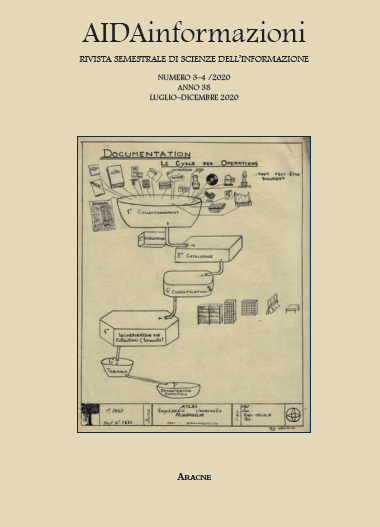Digitisation and Digital Cultural Heritage. Ambiguities, assumptions, definitions
Ambiguità, ipotesi, definizioni
Keywords:
Digital Transformation, Digitalizzazione, Digitization, Digitalization, Digital Cultural HeritageAbstract
Since the beginning of the Digital Transformation, the eu has classified the Cultural Heritage into the three categories: tangible, intangible and digital, the latter declined in digitized and born digital. However, which requirements should characterize
digital for allowing us to identify it as cultural heritage is still an open issue. In Italy, both all the processes linked to the dt and the resources produced by these processes are confusedly identified as digitalizzazione. English language distinguishes digitization
and digitalization concepts for defining with the one the process for creating digital entities, with the other the innovation of administrative and business processes. Starting by clarifying the Italian digitalizzazione faced to English digitization both applied to
cultural heritage, this paper aims to outline the requirements of digitization process for creating the new Digital Cultural Heritage. As case study we present the experience of the Victorian & Albert Museum of London.



